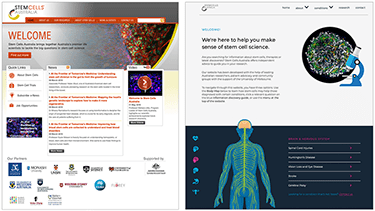Batteries are known as the heart of electric vehicles (EV) as they are particularly important to EV’s safety performance and robustness. An international research team formed by the Faculty of Applied Sciences of Macao Polytechnic University (MPU) advances some interdisciplinary and innovative applied research to unlock the potential of EVs and their batteries, enhancing sustainable transport to facilitate clean mobility and energy efficiency.

Macao Polytechnic University forms an international research team to advance some interdisciplinary and innovative applied research
Electric Vehicles being a Trend for Net-zero Solution
The goal of net-zero emissions is to be achieved by 2050. As the world moves towards this vision, sustainable transport has become an irresistible trend. EVs are gaining momentum as a promising solution for reducing our carbon footprint, its development in the automotive industry being on a roll whilst its safety being crucial. In that sense, regular “health checkups” are essential to ensure the health and durability of the vehicles. Monitoring battery performance data continuously and efficiently is crucial for maximising EV efficiency, longevity, and overall value, while real-time monitoring of EVs remains a challenge.
To tackle this challenge, recent studies from MPU have introduced a revolutionary connected monitoring system that could change the game. The system is equipped with machine-learning technology with high-efficient and low-cost hardware design, performing real-time monitoring and abnormality reporting. The applied system has been implemented and tested on a pure EV to acquire valid records for in-depth analysis. This breakthrough technology could be the key to unlocking the full potential of EVs and accelerating the transition towards a sustainable transportation system.
New Technology for Efficient Real-time Monitoring
The innovative connected monitoring system for EVs has been developed by the Faculty of Applied Sciences of Macao Polytechnic University, in collaboration with the University of Bologna and the University of California, Los Angeles. By leveraging the On-Board Diagnostic Version II (OBD-II) EV data, the researchers analysed tens of thousands of high-frequency data being collected through artificial intelligence and monitoring algorithms. Such data include battery management system (BMS) and power usage statistics, being utilised for the estimation of the battery state of health (SOH) and state of charge (SOC). This monitoring system continuously optimises vehicle performance through efficient collection of number of variables and their collection frequency.
The robustness of EV batteries plays a critical role on vehicle reliability, safety and lifespan. Researchers have conducted extensive field tests and data collection through real-world driving scenarios to seek breakthroughs. With over 8 million records acquired from 500 hours of driving, the research team has successfully identified hundreds of attributes that exhibit a strong correlation with battery degradation using the system, thereby enhancing battery robustness.

The hardware design of the innovative connected monitoring system
Innovation to Cease New Opportunities in Industry
Accurately estimating the health status of the EV battery poses a significant challenge due to the dynamic nature of EV operation. The EV monitoring system makes it possible to harness the power of advanced big data technology. A machine-learning model that can forecast the battery pack's average temperature before overheating has been established, thus diagnosed potential risks. Manufacturers can better understand vehicle performance, safeguard every journey, and enhance the driving experience. The success of machine learning has accelerated the development of data-driven EV battery state estimation and prediction. Ultimately, the optimal EV operations will be revealed and connected to the autonomous driving system.
The increasing number of EVs is bringing new technologies into the market. This transformative technology not only enables on-the-go monitoring but also has the potential to revolutionise the industry, paving the way for new business models and services. The optimisation of EV monitoring and maintenance benefits its performance and eco-efficiency, leading to reduction of carbon emissions more effectively, as well as promoting sustainable development and global climate actions.

Researcher Ka Seng Chou
Student-oriented Education to Cultivate Research
Committed to student-oriented education, Macao Polytechnic University promotes interdisciplinary and applied research and encourages students to involve in such research studies, working together with academic staff. Ka Seng Chou, Student of Doctor of Philosophy in Computer Applied Technology, plays a leading role in the study. He studied for his bachelor's degree in computing at MPU, and won the second prize in the Asia-Pacific InnoServe Award with the research outcome “Cloud-based Portable Personal Real-time Environmental Monitoring System”.
From environment to EV monitoring, Chou has made significant strides in contributing to a sustainable future in the unknown of science. “Through the wealth of research resources offered at MPU, I can delve into cross-disciplinary and innovative topics during my studies, and exchange with global-renowned researchers. These opportunities brought by science and technology allows me to contribute to the development of smart cities.”
Collaborative Innovation to Build a Liveable City
Matters about environmental protection and smart cities arouse global interest. In concert with the construction of a liveable city as addressed by the Macao government policy, MPU has vigorously developed patented products for international applications, among of those is Canarin, which is a cloud-based real-time environmental monitoring system. This system applicable to environment monitoring, in cultural heritage protection in particular, is being used in the centuries-old Joanina Library of the University of Coimbra in Portugal as well as the historic city of Bologna. Through its technology, environmental factors such as PM2.5, UV radiation, atmospheric pressure, temperature and humidity are aggregated to provide the necessary data for developing efficient environmental policy. This intelligent way of monitoring environmental change is a leap forward in collaborative research in the industry.
In May 2023, MPU and the University of Coimbra in Portugal established a joint laboratory for advanced technologies in smart cities, taking advantage of the cutting-edge technology and quality education of both parties. The laboratory serves as a platform to conduct research on relevant disciplines including computer science, artificial intelligence and ICTs, nurturing top-tier talents the next generation of scientific research, promote international academic and research exchanges, and help build a smart technology collaborative innovation ecosystem. By attracting and nurturing top talents, MPU continues to achieve innovation and excellence, creating a positive impact on society and the environment.
Explore more new insights at MPU:
Monitoring Electric Vehicles on The Go
Forecasting the Temperature of BEV Battery Pack Based on Field Testing Data
Identifying Degradation Indicators for Electric Vehicle Battery Based on Field Testing Data
Impact Evaluation of Driving Style on Electric Vehicle Battery based on Field Testing Result
Recognition of Driving Behaviour in Electric Vehicle’s Li-Ion Battery Aging








